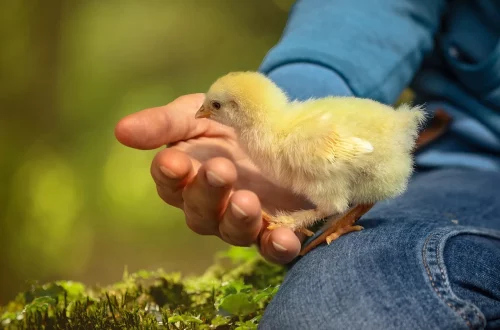
How Much Do Puppies’ First Shots Cost and What to Expect
Welcoming a puppy into your home is an exciting time filled with joy and anticipation. However, it also comes with responsibilities that every new pet owner must acknowledge. One of the most crucial aspects of puppy care is ensuring they receive their vaccinations on time. Vaccinations are vital for a puppy’s health, as they protect against various diseases that could be harmful or even fatal.
Understanding the costs associated with these first shots is essential for budgeting and planning your puppy’s healthcare. Many factors can influence the price, including the type of vaccinations required, the veterinary clinic you choose, and even your geographical location. As a responsible pet owner, it’s important to be informed about what to expect during this process.
In addition to the financial aspect, there are also emotional and logistical considerations involved in taking your puppy for their first shots. From choosing the right veterinarian to understanding the vaccination schedule, preparing for this experience can help ensure that your puppy receives the best possible care. Let’s explore the various elements related to your puppy’s first vaccinations and what you should keep in mind as you embark on this journey.
Understanding Vaccination Types and Schedules
When it comes to puppy vaccinations, it’s essential to understand the different types of vaccines they will need and the schedule for administering them. Vaccines can be categorized into two main groups: core vaccines and non-core vaccines.
Core vaccines are those that are considered essential for all puppies and include protection against diseases such as parvovirus, distemper, and adenovirus. These are serious illnesses that can lead to severe health complications, and vaccination is the best way to prevent them. Puppies typically receive their core vaccines starting at around six to eight weeks of age. The vaccinations are usually administered in a series, with boosters given every three to four weeks until the puppy is about 16 weeks old.
Non-core vaccines are given based on the puppy’s lifestyle, environment, and risk factors. For example, if your puppy will be frequently exposed to other dogs or will be spending time in areas where certain diseases are prevalent, your veterinarian may recommend additional vaccines, such as those for Lyme disease or kennel cough.
It’s important to discuss your puppy’s specific needs with your veterinarian, who can provide guidance on which vaccines are necessary based on your location and lifestyle. Additionally, keeping track of your puppy’s vaccination schedule is crucial to ensure they receive their shots on time and remain protected against potential health threats.
Cost Considerations for Puppy Vaccinations
The cost of a puppy’s first vaccinations can vary widely depending on several factors. On average, pet owners can expect to pay anywhere from $75 to $200 for vaccinations, but this can increase or decrease based on specific circumstances.
First, the location of the veterinary clinic plays a significant role in determining the cost. Urban areas may have higher veterinary fees compared to rural locations. Additionally, the reputation of the clinic, the experience of the veterinarians, and the available facilities can also influence pricing.
Another factor to consider is whether the vaccinations are part of a wellness package. Many veterinary clinics offer comprehensive wellness packages that include vaccinations, examinations, and other preventive care services at a discounted rate. This can be a cost-effective option for first-time puppy owners, as it not only covers vaccinations but also provides essential health checks.
Moreover, some pet owners may also consider low-cost vaccination clinics, which can provide basic vaccinations at a fraction of the price. However, it’s essential to ensure that these clinics maintain proper health standards and are staffed by qualified professionals.
Lastly, don’t forget to account for the potential additional costs associated with your puppy’s vaccinations, such as follow-up visits or treatments for any adverse reactions to the vaccines. Being prepared for these expenses can help you manage your budget effectively.
Preparing for Your Puppy’s Vaccination Visit
Preparing for your puppy’s vaccination visit can make the experience smoother and less stressful for both you and your furry friend. Start by ensuring your puppy is comfortable and well-rested before the appointment. A well-exercised puppy is more likely to be calm during the visit, making the process easier for everyone involved.
When you arrive at the veterinary clinic, be sure to bring any necessary paperwork, such as your puppy’s medical history or adoption records. If your puppy has had any previous vaccinations or health issues, sharing this information with the veterinarian can assist in determining the best course of action.
During the visit, the veterinarian will conduct a thorough examination of your puppy before administering any vaccines. This examination is essential to ensure that your puppy is healthy enough to receive vaccinations. If your puppy shows signs of illness, the veterinarian may recommend postponing the shots until they recover.
Once the vaccinations are administered, it’s important to discuss any potential side effects with the veterinarian. While most puppies tolerate vaccinations well, some may experience mild reactions such as lethargy or a slight fever. Understanding what to expect after the shots can help you monitor your puppy’s health and address any concerns.
Finally, don’t hesitate to ask questions during your visit. Whether it’s about vaccination schedules, potential side effects, or other health-related topics, your veterinarian is a valuable resource for information. Building a relationship with your vet can also ensure you receive the best possible care for your puppy throughout their life.
Post-Vaccination Care and Monitoring
After your puppy receives their vaccinations, it’s essential to monitor their health closely for any signs of adverse reactions. While most puppies experience no significant side effects, it’s important to be vigilant during the first 24 to 48 hours following the shots.
Common mild reactions include lethargy, a reduced appetite, or slight swelling at the injection site. These symptoms typically resolve on their own and do not require medical attention. However, if your puppy exhibits more severe reactions, such as difficulty breathing, excessive vomiting, or seizures, you should contact your veterinarian immediately.
Providing a comforting environment for your puppy post-vaccination can help them recover from any mild discomfort. Ensure they have a quiet space to rest, access to fresh water, and their favorite toys to keep them occupied.
Additionally, it’s crucial to keep your puppy away from other dogs and public areas for at least a week after vaccinations, especially if they are receiving core vaccines. This precaution helps minimize the risk of exposure to any illnesses while their immune system is adjusting to the vaccines.
Finally, be sure to keep track of your puppy’s vaccination records, as this information will be essential for future veterinary visits, boarding, or travel. Regular check-ups and vaccinations will set the foundation for a long and healthy life for your puppy.
*Please note that this article is for informational purposes only and should not be considered medical advice. Consult your veterinarian for any health-related concerns regarding your puppy.*




